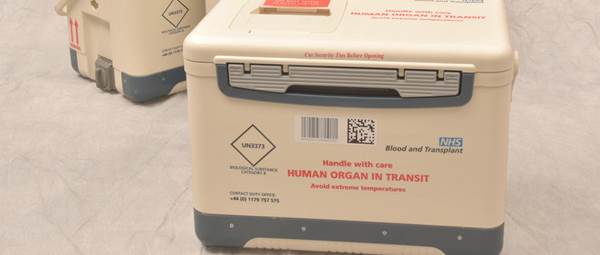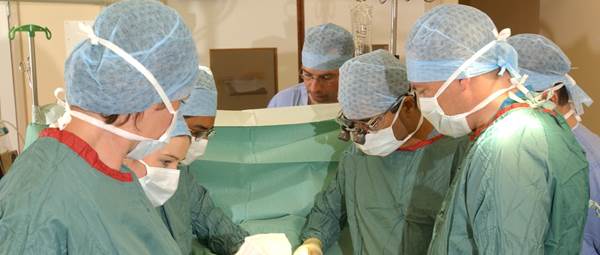How does the offering system work?
Learn how hearts from deceased donors are offered to patients
Key points
- It is important for donated organs to go to a patient who will benefit from it
- Patients are prioritised based on many different factors
- How long you have been waiting for an organ is also taken into account
- The organ offer will first go to your transplant team. If they feel it is suitable for you, they will get in touch
How are hearts offered?
Every donated heart is a precious gift, and it is important that the organ goes to:
- The patient who needs it most urgently
- The patient who will be most likely to benefit from it
Once a potential deceased donor is identified, blood tests are taken to check the donor’s tissue type, blood group, and to check the function of their organs. Other blood tests are taken to see whether the donor has any infections. A chest x-ray and ultrasound scan (echocardiogram) are also usually carried out to study the function of the heart.
This information is the passed to NHS Blood and Transplant and a nationally-agreed computer programme checks the national transplant waiting list for suitable patients.
How are patients prioritised?
Patients are prioritised for a donated heart based on:
- Urgency status (Super-Urgent, Urgent or Routine)
- Their blood group
- The weight and height of the donor compared to the recipient
- The presence of antibodies in the recipient blood that may react to the donor heart
- The geography: some priority is given to minimising the distance between donor and recipient as a longer travel time can have an adverse effect on heart function
- How long patients have waited for heart is taken into account, once the above factors have been considered
Urgency status
If the patient is on Super Urgent list, they will be offered the donor heart first, followed by patients on the Urgent list, then those on the Routine list. Where you are on the list depends on your condition. If you condition deteriorates, you may move up in priority.
A national committee agrees the way that deceased donor hearts are offered, with advice from NHS Blood and Transplant. The national committee agrees on how patients should be prioritised and how the computer programme should run.
What happens if you are offered a heart?
If your name is at the top of the computer-generated list, your transplant centre will be contacted by NHS Blood and Transplant. Your transplant team will check the donor information and your details to see whether the organ is a good match for you or not. Not all organs are suitable for all patients.
If your transplant centre thinks the heart offer is suitable, you will be contacted by telephone or, if you are already in hospital, told face to face.
In the meantime, specialist surgeons (the National Organ Retrieval Service) will travel to the donor’s hospital to remove the donor’s heart.
The heart is flushed with a special fluid to help preserve it, and then packed in a box with fluid and ice to protect it and keep it cool (DBD donors) or is sometimes transported in a special container in the beating state (DCD donors).
Can offers be declined?
Yes. Your transplant team can decline the offer if they feel the organ is not suitable for you.
Your transplant team will talk to you about different types of donors and donor-related risks when you are put on the transplant waiting list.
Sometimes, the final decision about whether an organ is suitable for you can only be made once the organ has been looked at in the donor’s hospital.
If the organ offer is declined, it will usually be offered to another patient.
National criteria for offering hearts
All transplant teams in the UK must follow national criteria for selecting patients suitable for a heart transplant.
Very rarely, you may be considered for the transplantation of more than one organ. This may include a heart and lung, heart and kidney, or heart and liver transplant.



